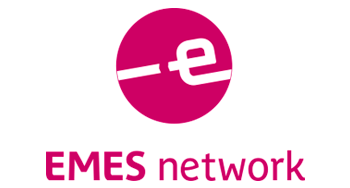Lately, international declarations have underlined that education should focus on fostering entrepreneurship competences throughout life so that citizens feel prepared to overcome and respond to the social problems and needs countries are facing (European Higher Education Area, EHEA, 2012; UNESCO, 2009).
For this reason, an increase number of educational institutions have taken up the challenge of promoting education “for” entrepreneurship, integrating it as part of their mission and emphasizing the importance of the development of particular competences, and teaching and learning methodologies in order to achieve it. Despite this progress, different pieces of research confirm that there is little consistency among educational programs put in place. In addition, aiming to foster entrepreneurship with a strong commitment to respond to social challenges, various studies point out that it is essential to reach a common framework regarding social entrepreneurship training (Dacin, Dacin & Tracey, 2011; Fayolle & Gailly, 2008; Ferrer et al. 2014; Osorio & Pereira, 2011; Pfeilstetter, 2011).
Thus, one of the main agreements to be achieved refers to the competences that should be contemplated and developed, within the purpose of fostering self esteem and confidence (Koiranen & Ruohotie, 2001; Villanueva, 2013; Korsgaard, 2011; Raposo & do Paço, 2011; Sanchez, 2013), as well as promoting ethical, social and emotional values (Taatila, 2010).
As a result of the analysis of skills and competences considered in the literature, a classification of social entrepreneurial competences has arisen. The social entrepreneur’s profile (Moreau & Mertens, 2013) should contemplate competences that encompass the following four blocks: competences related to the task or job performance; those linked to social relationships building; competences regarding the development of personal skills; and those considering philosophical and ethical issues. From this global perspective, the fourth block focusing on philosophical and ethical competences is perceived as crucial because it emphasizes that entrepreneurial education should encourage, in turn, involvement and social commitment.
In the first block, these competences promote knowledge and skills related to task or job performance. They are classified considering the ones that are fostered: innovation and creativity; vision and future project; recognition of entrepreneurial opportunities; setting objectives; decision making; planning and management; problem solving; and time management. (Chell, 2013; Martínez & Carmona, 2009; Moriano, Trejo & Palací, 2001; Toca, 2010; Villa & Poblete, 2008).
The second block focuses on competences related to social relationships building. These are classified due to the capacities that are developed: leadership; ability to effective relationships; teamwork; communication skills; motivation and organization; delegation and people management. (Arias & Castillo, 2011; Martínez & Carmona, 2009; McClelland, 1989; Toca, 2010; Villa & Poblete, 2008).
The third block considers competences regarding the development of personal skills. They aim to promote: initiative and proactivity; autonomy; adaptability; tenacity and perseverance; self-confidence and positive mental attitude; inner self-control and responsibility; stress management and uncertainty tolerance; and ability to take risks. (Martínez & Carmona, 2009; Moriano et al., 2001; Toca, 2010).
Villa & Poblete (2008) and Taatila (2010) highlight social competences as central. Besides, Marina (2010) argues that philosophical and ethical responsibilities are crucial so that entrepreneurs are to be committed and engaged in order to promote changes in individual behaviour patterns and contribute to community, institutional and social changes towards equity and social justice.
Therefore, the fourth block is vital in the formation of future social entrepreneurs, because its ultimate goal is involving professionals in social transformations sustainable throughout time. It consists of the philosophical and ethical competences that enhance (Marina, 2010): ethical sense and code; awareness towards others; critical thinking; and involvement in social reality. (Martínez & Carmona, 2009; Toca, 2010; Villa & Poblete, 2008).
As it can be observed, these competences seek to develop a profile of a social entrepreneur who is able to detect a social need and create an innovative and sustainable project to solve it. These professionals engage in social transformation challenges and embark in the generation of a profound and long-lasting change. Their ultimate motivation is to build up a more just and equitable society.
The literature review carried out and the competence classification unfold aim to contribute to the understanding of the competences that any training program should contemplate in order to promote social entrepreneurship among students. However, new fields of analysis of possible competences that have not been underlined in this study should be contemplated. As part of our research (Villa, 2013), competences related to business management, and those regarding sustainability and the environment have raised, and further analysis must take place.
Besides, it is necessary to continue to investigate and deepen into teaching and learning methodologies that are most suitable to promote the competences analyzed in this area of research. Assessment and evaluation systems aligned with these training methodologies should also be explored. Further research in this area will help to reach agreement and support the improvement on core aspects of social entrepreneurship education, particularly in Higher Education.
*Note: This text is a summary of the article accepted for publication on March 3rd, 2015, in REVESCO. Revista de Estudios Cooperativos. Sáenz, N. y López, A.L. (in press). Las competencias de emprendimiento social, COEMS: Aproximación a través de programas de formación universitaria en Iberoamérica. REVESCO. Revista de Estudios Cooperativos.
References
ARIAS, C.M. & CASTILLO, E. (2011). La educación para el emprendimiento y empresarismo virtual: potencialidades. Revista Virtual Universidad Católica Del Norte, (Febrero-Mayo).
CHELL, E. (2013). Review of skill and the entrepreneurial process. International Journal of Entrepreneurial Behaviour & Research, 19 (1), p. 6-31.
DACIN, T.; DACIN, P.A. & TRACEY, P. (2011). Social entrepreneurship: a critique and future directions. Organization Science, 22 (5), p. 1203-1213.
EUROPEAN HIGHER EDUCATION AREA, EHEA (2012). Making the Most of Our Potential: Consolidating the European Higher Education Area. Bucharest Communiqué. Final Version.
FAYOLLE, A. & GAILLY, B. (2008). From craft to science. Teaching models and learning processes in entrepreneurship education. Journal of European Industrial Training, 32 (7), p. 569-593.
FERRER-CERVERÓ, V., CABRERA-SANTACANA, O. E., ALEGRE-BENERIA, R. M., MONTANÉ-LOPEZ, A., SÁNCHEZ-VALVERDE-VISUS, C., & ALAIZ-CHUECA, E. (2014). El perfil del emprendedor social del estudiantado de los Grados de Educación Social, Pedagogía y Trabajo Social en la Universidad de Barcelona. REIRE, Revista d’Innovació i Recerca en Educació, 7 (1). Retrieved from: http://www.ub.edu/ice/reire.htm. ISSN: 2013-2255.
KORAINEN, M. & RUOHOTIE, P. (2001). In the Pursuit of Conative Constructs into Entrepreneurship Education. Journal of Entrepreneurship Education, 3, p. 9-22.
KORSGAARD, S. (2011). Opportunity formation in social entrepreneurship. Journal of Enterprising Communities: People and places in the global economy, 5 (4), p. 265-285.
MARINA, J.A. (2010). La competencia de emprender. Revista de Educación, 351, p.49-71.
MARTÍNEZ, F. & CARMONA, G. (2009). Aproximación al concepto de “competencias emprendedoras”: Valor social e implicaciones educativas. REICE. Revista Iberoamericana Sobre Calidad, Eficacia y Cambio en Educación, 7 (3), p. 82-98.
MCCLELLAND, D.C. (1989). Estudio de la motivación humana. Madrid: Narcea. ISBN: 8427708610.
MOREAU, C. Y MERTENS, S. (2013). Managers’ competences in social enterprises: which specificities? Social Enterprise Journal, 9 (2), p. 164-183.
MORIANO, J.A.; TREJO, E. & PALACÍ, F.J. (2001). El perfil psicosocial del emprendedor: un estudio desde la perspectiva de los valores. Revista de Psicología Social, 16 (2), p. 229-242.
OSORIO, F.F. & PEREIRA, F. (2011). Hacia un modelo de educación para el emprendimiento: una mirada desde la teoría social cognitiva. Cuadernos de Administración, 24 (43), p. 13-33.
PFEILSTETTER, R. (2011). El emprendedor. Una reflexión crítica sobre usos y significados actuales de un concepto. Gazeta de Antropología, 27 (1).
RAPOSO, M. & DO PAÇO, A. (2011). Entrepreneurship education: Relationship between education and entrepreneurial activity. Psicothema, 23 (3), p.453-457.
SÁNCHEZ, J.C. (2013). The impact of an Entrepreneurship Education Program on entrepreneurial competencies and Intention. Journal of Small Business Management, 51 (3), p. 447-465.
TAATILA, V.P. (2010) Learning entrepreneurship in higher education. Education + Training, 52 (1), p. 48-61.
TOCA, C. (2010). Consideraciones para la formación en emprendimiento: explorando nuevos ámbitos y posibilidades. Estudios Gerenciales, 26 (17), p. 41-60.
UNESCO (2009). 2009 World Conference on Higher Education: The New Dynamics of Higher Education and Research for Societal Change and Development. Communiqué Declaration. Paris, 5 – 8 July 2009.
VILLA, A. (ed.) (2013). Un Modelo de Evaluación de Innovación Social Universitaria Responsable (ISUR). Tuning – América Latina. Bilbao: Publicaciones de la Universidad de Deusto.
VILLA, A. & POBLETE, M. (2008). Aprendizaje Basado En Competencias: Una Propuesta Para La Evaluación De Las Competencias Genéricas. Bilbao: Mensajero. ISBN: 978-84-271-2833-0.
VILLANUEVA, S.D. (2013). Las competencias dentro del rol profesional: diferencias entre la Educación Superior (universitaria) y las demandas del mercado laboral. Revista Debate Universitario, 1, (2m) p. 44- 65. Buenos Aires, CAEE-UAI. Retrieved from: http://ppct.caicyt.gov.ar/index.php/debate-universitario/article/viewFile/1605/pdf.ISSN: 2314-1530.
 Nerea Sáenz Bilbao is a PhD student and a research fellow in the INNOVA research team at the University of Deusto (Bilbao, Spain). She is MA on Higher Education Innovation and Competence Development from the University of Deusto. Her research focuses on social entrepreneurship in Higher Education. More precisely, she is researching educational programs in social entrepreneurship considering competences, teaching and learning methodologies and evaluation and assessment systems through case studies of the training programs implemented by two European universities. As part of her PhD, she has recently carried out a research stay in the Centre for Social Economy at the University of Liège (Belgium).
Nerea Sáenz Bilbao is a PhD student and a research fellow in the INNOVA research team at the University of Deusto (Bilbao, Spain). She is MA on Higher Education Innovation and Competence Development from the University of Deusto. Her research focuses on social entrepreneurship in Higher Education. More precisely, she is researching educational programs in social entrepreneurship considering competences, teaching and learning methodologies and evaluation and assessment systems through case studies of the training programs implemented by two European universities. As part of her PhD, she has recently carried out a research stay in the Centre for Social Economy at the University of Liège (Belgium).
E-mail: nerea.saenz@deusto.es


Leave a comment